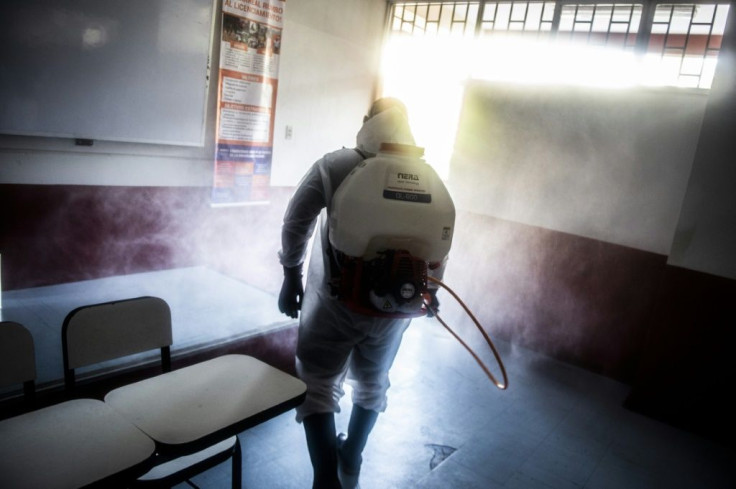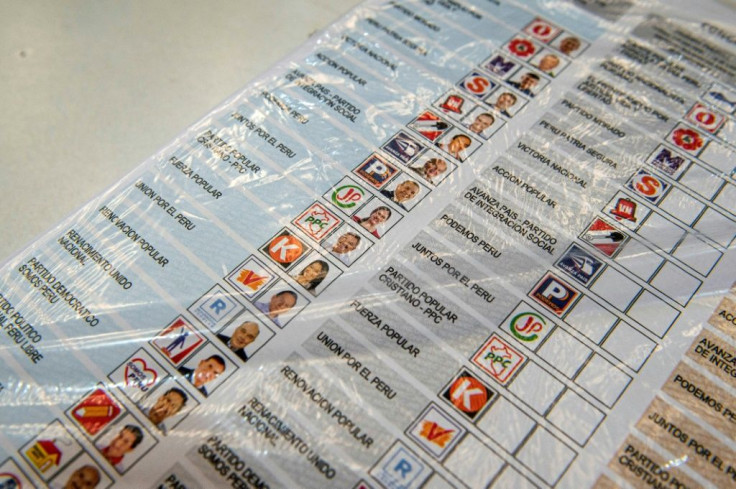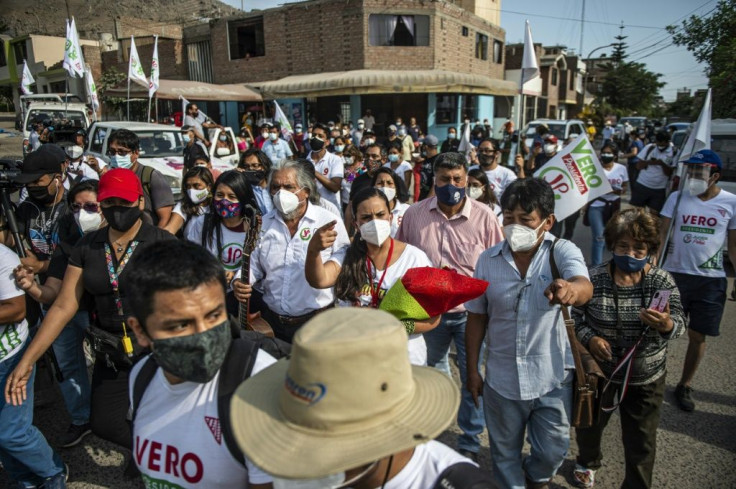Inconclusive Peru Presidential Vote Amid Deadly Covid-19 Surge
Ballots were being counted Sunday in Peruvian presidential elections destined for a run-off with no candidate able to fire up the crisis-weary nation, during its deadliest week of the Covid-19 pandemic to date.
Some 25 million people were eligible to vote -- which is mandatory -- the day after Peru reported its highest-ever daily toll in the pandemic.
With 38 percent of votes counted by early Monday, far-left labor unionist Pedro Castillo took a surprise lead among 18 candidates with 15.9 percent -- much higher than polls had predicted but far short of the 51 percent required to avoid a run-off scheduled for June 6.

In second place was rightist economist Hernando de Soto with 14 percent, said the ONPE electoral office.
Nearly 15 percent of votes had been ruled blank or invalid.
The two candidates with the most votes will contest the second round.
Almost a third of voters had declared themselves undecided ahead of what Ipsos Peru chief Alfredo Torres said was the country's "most fragmented election" ever.

Many said they turned out, despite fear of infection, merely to avoid the fine of 88 sol (about $24) for not voting.
"We are afraid of getting infected, because this pandemic is terrible, but at the same time I have to vote," Nancy Retamozo, 58, told AFP while queuing at a school in a Lima suburb.

Peruvian authorities on Saturday reported 384 fatalities in 24 hours -- the third daily record in a week -- bringing the overall toll to more than 54,600 in the country of 33 million people.
More than 11,200 new daily cases were reported, adding to another 1.6 million to date.
On Sunday evening, the authorities announced the latest daily death toll of 234.

Peru's government had decided to press ahead with elections as South America battles a surge in infections fueled by new virus variants believed to be more contagious.
Six of Peru's 18 presidential candidates, including Castillo, have contracted the virus.
Thousands of polling stations were open for 12 hours from 7:00 am (1200 GMT) -- four hours longer than usual as authorities sought to prevent voters amassing.

As some Peruvians lined up to vote Sunday, others queued for oxygen refills for ill relatives battling coronavirus infection.
"It is unfair, because instead of being there in the voting queue, we had to get up at daybreak to fetch oxygen," Micaela Lizama, 38, told AFP in Lima.
Mario Tinoco, 52, said he was willing to risk the fine for not voting because "I have to get oxygen, that is the main thing for me."
Despite the pandemic outlook, election campaigning had continued until Thursday, with candidates drawing hundreds of followers to often boisterous rallies.
The early count showed ultra-conservative celibate Catholic Rafael Lopez Aliaga in third place, followed by corruption-accused populist Keiko Fujimori, who was lagging by fewer than four percentage points behind frontrunner Castillo.
"I don't want to vote, because there is no suitable candidate, but I am more afraid of radicals entering the government," one voter, 51-year-old Johnny Samaniego told AFP in Lima on Sunday.
Also in the running were center-right Yonhy Lescano, leftist anthropologist Veronika Mendoza, and former football goalkeeper George Forsyth, who had also contracted Covid-19.
Counting all the votes will take a while still, and the official announcement on the final two candidates may only come in early May, Peru's National Jury of Elections said.
The uncertain outcome had the markets worried, and the Peruvian sol plunged to a record low 3.8 to the US dollar last month, adding to the future president's full in-tray.
Peru has been in recession since the second quarter of last year after coronavirus lockdowns shuttered businesses and crippled the all-important tourism sector.
Its economy contracted more than 11 percent in 2020, four million people lost their jobs and another five million dropped into poverty.
The country has also been convulsed by political upheaval driven by claims of corruption at the highest echelons.
Whoever wins will be Peru's fifth president in three years, after three fell within days of each other in November 2020 amid protests that left two people dead and hundreds injured.
Peruvians also voted for 130 members of Congress.
© Copyright AFP 2024. All rights reserved.





















